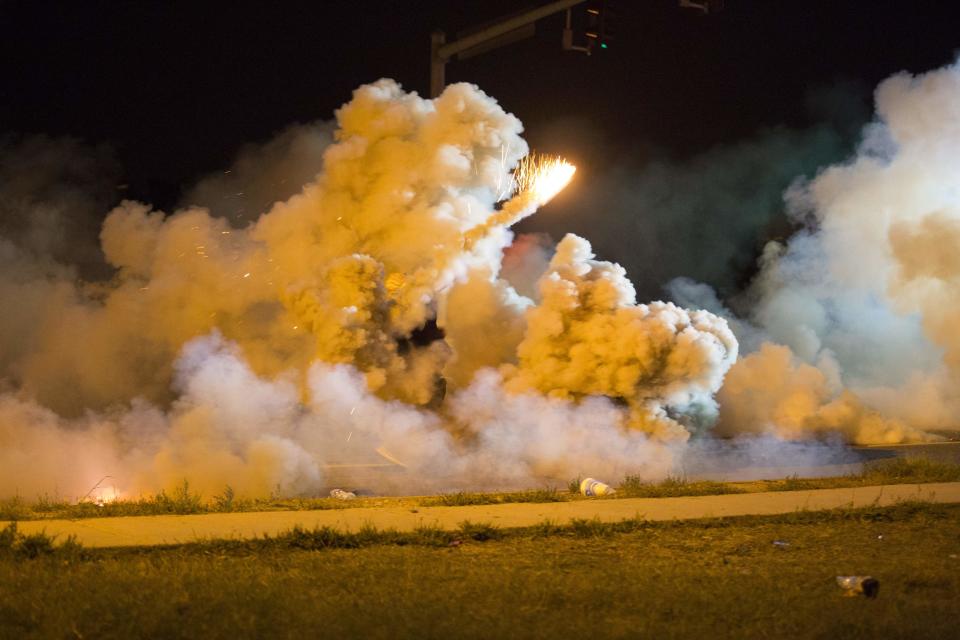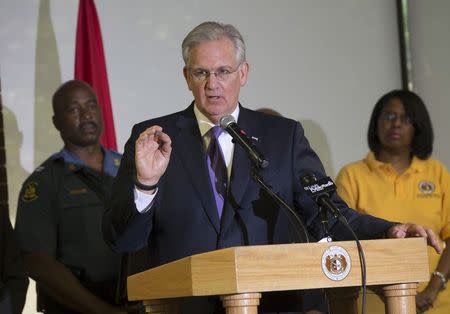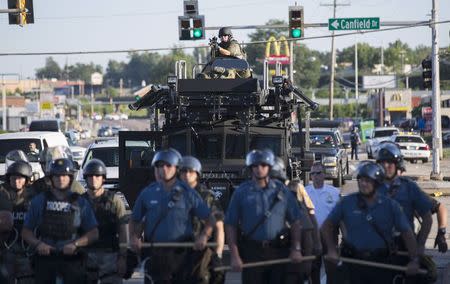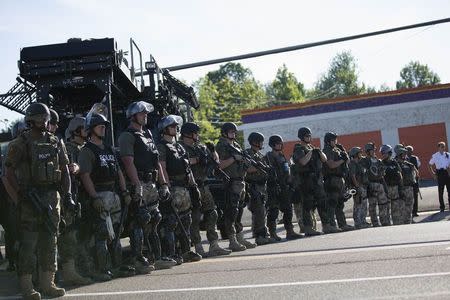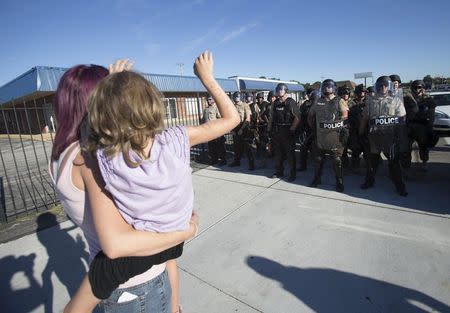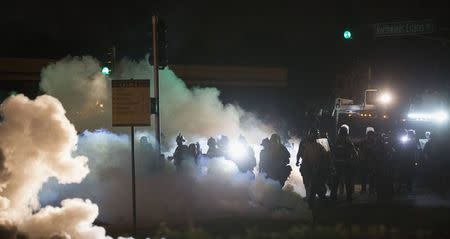Missouri takes control of security away from Ferguson police
By Nick Carey FERGUSON Mo. (Reuters) - Missouri's governor moved on Thursday to calm days of racially charged protests over the police shooting of an unarmed black teenager, naming an African-American captain of the Highway Patrol to oversee security in the St. Louis suburb of Ferguson. Captain Ron Johnson, who grew up in Ferguson, told reporters he would take a new approach after complaints that police have used heavy-handed tactics, arresting dozens of protesters and using teargas and pepper pellets to break up crowds. Ferguson, a mostly black town of 21,000 with a predominantly white police force that has been accused of racial profiling in the past, was bracing for a fifth straight night of protests on Thursday after a police officer shot and killed 18-year-old Michael Brown last weekend. Since Sunday, there have been peaceful vigils and demonstrations - with hundreds of protesters holding their hands in the air and chanting "hands up, don't shoot" - as well as episodes of looting, vandalism and violence. U.S. President Barack Obama, seeking to defuse tensions in Ferguson, called on police to respect peaceful demonstrations. "There is never an excuse for violence against police or for those who would use this tragedy as a cover for vandalism or looting," Obama said. "There's also no excuse for police to use excessive force against peaceful protesters or to throw protesters in jail for lawfully exercising their First Amendment rights," he said in remarks broadcast from Edgartown, Massachusetts, near where he is vacationing with his family. The protests have cast a spotlight on racial tensions in greater St. Louis, where civil rights groups have complained in the past that police racially profiled blacks, arrested a disproportionate number of blacks and had racist hiring practices. Governor Jay Nixon praised Ferguson on Thursday for being a diverse, hard-working community, but he said, "lately it has looked a little bit more like a war zone, and that is unacceptable." Police have pledged to do better but have also justified the tactics, saying they have responded to the threat of violence during protests. "We are going to have a different approach," Johnson said at the news conference where Nixon announced his role in directing Ferguson's security. He said he would go to "ground zero" on Thursday evening, the area where Brown was killed and also where a convenience store was burned down on Sunday in riots. Additionally, U.S. Attorney General Eric Holder said in a statement that police had accepted an offer of technical assistance from the Justice Department "to help conduct crowd control and maintain public safety without relying on unnecessarily extreme displays of force." The Justice Department, the FBI and the St. Louis County prosecutor's office are all investigating Brown's death. HANDS IN THE AIR Protesters have decried what they say is a lack of transparency by police investigating the incident - including the refusal to release the officer's name. And some have called for St. Louis County Prosecuting Attorney Bob McCullough to be removed from the case. Early on Thursday, a member of the Anonymous hacker activist collective tweeted the name of a person alleged to be the police officer who shot Brown. But police and other Anonymous tweeters said the activist had named the wrong person. Police said threats from cyber activists were one reason they continued to be reluctant to release the officer's name. But Nixon said on Thursday that authorities should be expeditious about identifying the officer. There is little clarity on what occurred during Saturday's incident. Police have said that Brown struggled with the officer who shot and killed him. The officer involved in the shooting was injured during the incident and was treated in a hospital for swelling on the side of his face, they said. But some witnesses have said that Brown held up his hands and was surrendering when he was shot multiple times in the head and chest. (Reporting by Nick Carey; Additional reporting by Brendan O'Brien in Milwaukee, David Bailey in Minneapolis, Carey Gillam in Kansas City and Jeff Mason in Edgartown, Mass.; Writing by Fiona Ortiz; Editing by Eric Beech)

 Yahoo News
Yahoo News 